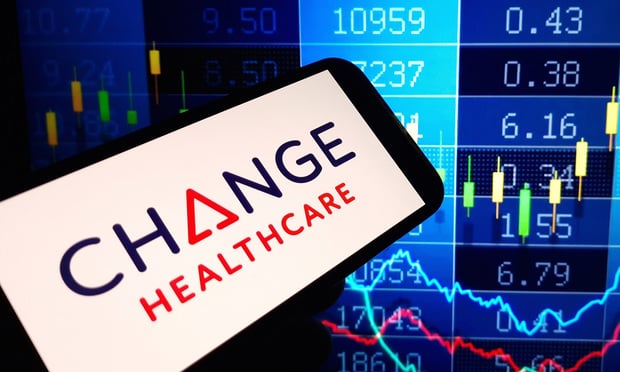 Abetter-connected health-care system would provide clinicians withmore complete profiles of their patients, researchers with moredata to study and individuals with more information to take controlof their health. (Image: Shutterstock)
Abetter-connected health-care system would provide clinicians withmore complete profiles of their patients, researchers with moredata to study and individuals with more information to take controlof their health. (Image: Shutterstock)
Microsoft Corp. is releasing a service to help health-carecompanies move vast amounts of patient data to its cloud andconnect with other related systems in a bid to offer clinicians,individuals and researchers a more comprehensive view of patienthealth.
|The tool, based on Microsoft's Azure cloud platform and anational standard for exchanging health records, will let disparatehealth systems talk to each other, for example hooking up patient records with pharmacy systems, fitnessdevices and others more seamlessly.
|Related: Machine learning ready to rock the health careindustry
|Health care lags behind some other industries in moving data tointernet-based storage, and while health records have mostly gonedigital, they are often stored in different databases that can'tshare information easily. That makes it hard to create systems thatuse new artificial intelligence and data analysistechniques to track patient well-being and find new targetedtherapies. A better-connected health-care system would provideclinicians with more complete profiles of their patients,researchers with more data to study and individuals with moreinformation to take control of their health, according toMicrosoft. It's also an attempt to help Microsoft attract companiesto Azure over market leader Amazon Web Services.
|Microsoft will also continue to add new health-care tools toAzure, said Peter Lee, vice president of Microsoft Healthcare, inan interview. “It's hard to think of data standards forinteroperability as a sexy topic,” he said, but it's critical to ahost of new healthcare applications.
|The software giant has been pushing into health care in fits andstarts over the past several years. Recently it has been working oncloud and artificial-intelligence products to help reducedata-entry tasks for doctors, triage patients and providemore-targeted cancer care. Last month, Microsoft announced an Azuredeal with Walgreens Boots Alliance Inc. The drugstore company saidit will use Azure for services that connect patients' health-caredata with clinicians and pharmacists, among other things.
|To be successful in health care, Microsoft must train itssoftware and artificial intelligence tools to be familiar withmedical needs and terminology and must comply with a complex set ofprivacy requirements around healthcare data. Microsoft willannounce the new Azure service next week at the HIMSS healthcareconference in Orlando, Florida. One example the company will showis using the service to create an app for scheduling hospitalnurses. Microsoft also plans to announce about three dozenorganizations that are already trying the new tool, Lee said.
|In other health-care initiatives, Microsoft is making itshealth-care bot more widely available. The tool helps health-careorganizations build their own chatbots and virtual assistants.After being introduced in 2017 as a research project, the serviceis already in use by customers like Premera Blue Cross for helpingcustomers get general information on insurance claims and benefits.Children's Healthcare of Atlanta developed an app for patients toask questions about medication or details of their schedule. About350 new organizations have began building their own bots since aninitial preview a few months ago, Lee said
|Microsoft also has a pilot project to use the health bot in thefuture to help patients find clinical trials for new drugs andtherapies, Lee said. The idea is to combine work Microsoft isalready doing on using artificial intelligence to scan complexmedical documents related to clinical trial information with a botinterface. A patient could, for example, search for breast cancertrials and answer some questions from the bot that would thenrecommend trials that might be appropriate. Right now trialdocuments can be hard to comb though and understand, Lee said.
|The health bot can also be used to help customers stick withprescriptions and ask them questions via text if they don't filltheir prescriptions to detect problems. Sometimes patients forgetwhat a particular drug is if they've removed it from the container– Microsoft's computer vision software could let patients scan thepills and identify them, Lee said.
|The Redmond, Washington-based company is also working on gettinghealth-care teams on to its Microsoft Teams chat software — whichcompetes with Slack Technologies Inc. – in order to bettercoordinate care, particularly when there are as many as 20 peoplecaring for a single patient and most rely on mobile phones as theywalk around hospitals. New capabilities will allow electronichealth records that comply with the Fast HealthcareInteroperability Resources standard to be integrated with Teams, sothat hospital staff can access patient records in the same appwhere they take notes, message with other team members and managecare. Microsoft would also like to enable health-care teams to addparents of hospitalized patients to these chat groups, in order tokeep them up to speed on their child's care, Lee said.
|Read more:
- Amazon's latest venture: Mining your health caredata
- Electronic health records to become moreinteroperable, intelligent
- Tech giants pledge to reform health caredata
Copyright 2019 Bloomberg. All rightsreserved. This material may not be published, broadcast, rewritten,or redistributed.
Complete your profile to continue reading and get FREE access to BenefitsPRO, part of your ALM digital membership.
Your access to unlimited BenefitsPRO content isn’t changing.
Once you are an ALM digital member, you’ll receive:
- Critical BenefitsPRO information including cutting edge post-reform success strategies, access to educational webcasts and videos, resources from industry leaders, and informative Newsletters.
- Exclusive discounts on ALM, BenefitsPRO magazine and BenefitsPRO.com events
- Access to other award-winning ALM websites including ThinkAdvisor.com and Law.com
Already have an account? Sign In
© 2024 ALM Global, LLC, All Rights Reserved. Request academic re-use from www.copyright.com. All other uses, submit a request to [email protected]. For more information visit Asset & Logo Licensing.








